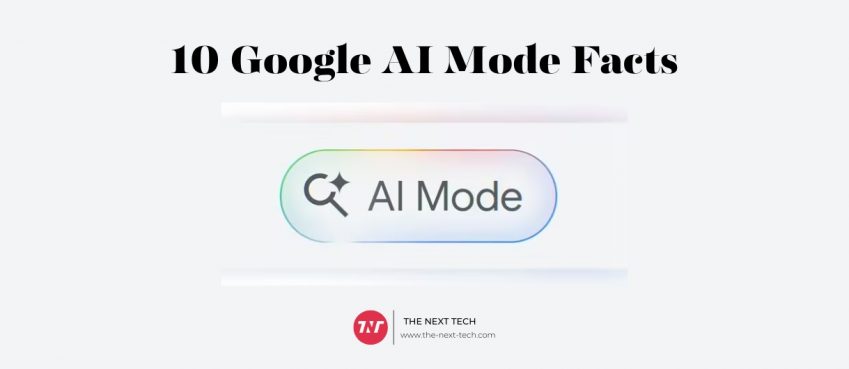
It is important to improve your skills as a business professional by meeting new people and building real relationships. Engaging with others effectively is a key part of building relationships. The more you do this, the easier it becomes. The process of building relationships is something we look forward to and it brings us joy.
The opportunity we have in life depends on both what and who we know. Conferences offer a unique opportunity for us to alter the “who” we know forever, even though we meet people everywhere.
7 Ways for Connecting and Building Relationships at Conferences
Many events are held to gain knowledge and foster new connections. We all go to events for the same reason: to learn new things and build new relationships. These relationships can lead to long-term friendships and business partnerships.
Participating in events
Events are the type of gatherings that allow us to make connections easier. Even though many conferences are now virtual or postponed because of the pandemic it is important to attend these events and build relationships.
Attending events now will require both adaptations to the “new normal”, in the short-term, of socially distant networking and preparation for an enthusiastic return to in-person networking in the long term.
The benefits of connecting
The true benefit of the connections made at conferences is not always apparent. To nurture them into meaningful relationships, we must have a plan. These relationships can be built slowly through patient, authentic, and purposeful follow-up. Effective follow-up is dependent on the information you gather, and the energy that you put into representing yourself best.
Follow-ups that are authentic
Genuine follow-up is a way to stand out among the crowd. The “crowd”, unfortunately, tends to default towards the easiest and most effective ways of building relationships.
One of two things happens after you meet someone at the conference: (1) you never hear from them again; or (2) you get a generic email message or LinkedIn message saying, “It’s nice meeting you at the conference.” Let’s keep in touch”, perhaps with a link.
If you’ve ever made one of these mistakes (as I was), you can create an action plan to help you avoid making the same mistake again. Preparation is the first step.
Before the conference, set your goal
Before attending a conference set specific goals regarding the type of contacts that you want to make. Before you leave, create a plan for your follow-up that will help you to connect with and help the more qualified contacts.
Keep in mind that while a person might not be the right contact for you they might know someone who is.
You might not immediately see the best and most mutually beneficial relationships that you have. To discover your common interest and potential, it may take several conversations or meetings with someone to establish a shared foundation.
My colleague Sameer Somal from Blue Ocean Global Technology met the head sales representative for a financial service firm that he had introduced to others. However, Sameer assumed the new contact would not be able to work directly with our company. The new contact discovered how Blue Ocean helps organizations to build a digital presence that promotes sustainable sales growth.
The new contact connected with Sameer again and the owner of his company. The new contact recommended that Blue Ocean Global Technology be hired to develop and implement a plan to better allocate their sales, marketing, and technology resources. All of us win.
Connect, network, and build your connections at your next conference.
1. Focus on Connecting
Focus on the person you are speaking to during your first conversation. Giving people your full attention can make them feel valued and important. This is the best gift you can give to anyone. People will openly talk about their work, passions, and business when they feel heard.
To avoid getting distracted by all the noise around you, face them directly and lean towards them. Be respectful of their privacy. You should not be in a noisy area or hallway. Consider moving to a quieter part of the room or alcove. This will allow you to engage with them without distractions.
When you are meeting someone new, resist the temptation to look around at other people or the conversation. Do not look around. This can make a negative first impression of you and could lead to a second opinion.
Alex Jenkins is Avantis Investors’ Relationship Director and Investment Specialist. He makes a conscious effort not to bring up business topics when meeting someone for the first. Alex will be open to discussing professional and work issues with the other person, but he does not actively steer the conversation.
Alex avoids direct mention of business to show that he cares about the person and not just what they do.
You can learn a lot from your contacts by paying close attention to what they are thinking and feeling. They might share valuable business information as well as their favorite sports team, a favorite movie, or something about a family member.
Trust is built by focusing on the new acquaintance. These people might be the best business relationships you will ever have.
Also read: Top 10 Business Intelligence Tools of 2021
2. Record Important Details
Prepare to collect more information than a person’s basic Contact Information. Take notes during conversations and jot down the main takeaways right after speaking with them.
Use the note feature of your best smartphone or a small notebook to keep all your information in one place. You can make notes on the backs of business cards that you have collected or use the recorder app on your phone to do so.
Do not expect to remember all details. No matter how interesting a conversation is, it’s likely that we will forget key pieces of information soon after the next conversation starts. Take a few moments to review and record the key points of your first conversation with a new person.
Also read: The Five Best Free Cattle Record Keeping Apps & Software For Farmers/Ranchers/Cattle Owners
3. Listen to Learn
If someone shares information about themselves with you, reply by acknowledging it and adding a question or comment. Do not just move on to another topic.
Positive feedback can be shared with others, which builds trust. You might also find useful information in your follow-up conversations.
Let’s suppose that the person mentions a new product for their company. Ask them what they think about the product and how it differs from other products in the company. You could respond with “Thanks for sharing.” You can ask them questions and learn more about their priorities. This will make it easier to build a relationship.
John Livesay, author, says that people will be more open to sharing their stories with you if you can recall a particular part of their story. Storytelling can help you sell better.
4. Define your Relationship
Consider why every new contact is interested to speak with or.
Ask them to describe the type of person they are looking forward to meeting at the conference. You might be that person. If not, you can offer to introduce them and your network to someone who may be a suitable match. This will hopefully engage what is known as the Law of Reciprocity. It will make them feel a little obliged to return the favor.
Now you have a greater reach at the conference. This may help you to identify “takers”, people who are not interested in helping you.
You can exchange business numbers if necessary so that you can contact one another quickly if you meet someone else.
Also read: Does Chunking In NLP Exist In 2025? Or Is It Overtaken By Modern LLMs?
5. Learn their Preferences
Ask everyone you meet about how they prefer to be reached. Some people might prefer to be contacted by phone, while others may feel overwhelmed by email. Some may prefer a quick text message to set up a meeting or call. You want to be able to communicate with them simultaneously in a way that will make them more open to you.
Respecting their wishes can show that you want to build a genuine relationship with them at their convenience and highlight your differences.
6. Focus on Qualified contacts
Quality over quantity. You won’t be a winner if you return from a conference with hundreds of new contacts. Your ability to make qualified contacts is what will determine your success. Spend as much time as possible interacting with people you can follow up on later.
It was exhausting to keep up with everyone the same way. Look for people who are most qualified to do business directly with you or who could facilitate another beneficial relationship.
Incorporate your business-related questions into your conversations. You never know who you might be speaking with. It’s possible that you are speaking with a potential client who can solve a problem for your business and generate new business.
“Qualified relationships are those that you approach with open minds and a willingness to learn from others. Successful philanthropists often state that volunteering is selfish, because it makes them feel good. Connecting with people should be about what you can get from them. “What you get from others is more valuable than what you can possibly exude.” — Marie Beane Director of IBM Worldwide Storage.
Also read: Top 10 IT Skills in Demand for 2021
7. Schedule your Follow-up
Effectively following-up with people takes some time. So before you leave for a conference or even start planning your schedule, make sure to include opportunities during the week after the event to reach out to new contacts.
You risk falling back into routines and ignoring or postponing important steps in building relationships. These generic messages that I spoke of earlier are often a result of not taking the time to follow-up.
Even though mediocre businesspeople may feel satisfied that they did something, this is not how true success business professionals work.
If managed well, your first contacts at conferences can help to sow the seeds of fruitful business relationships for the future.
It is important to remember that strong relationships don’t happen in a matter of minutes or days. Therefore, your follow up plan is crucial.
You can set the stage for success by empowering yourself with valuable information. Be attentive to details and incorporate them into any subsequent communications. Also, foster positive associations for all involved.
Top 10 News
-
01
Top 10 Deep Learning Multimodal Models & Their Uses
Tuesday August 12, 2025
-
02
10 Google AI Mode Facts That Every SEOs Should Know (And Wha...
Friday July 4, 2025
-
03
Top 10 visionOS 26 Features & Announcement (With Video)
Thursday June 12, 2025
-
04
Top 10 Veo 3 AI Video Generators in 2025 (Compared & Te...
Tuesday June 10, 2025
-
05
Top 10 AI GPUs That Can Increase Work Productivity By 30% (W...
Wednesday May 28, 2025
-
06
[10 BEST] AI Influencer Generator Apps Trending Right Now
Monday March 17, 2025
-
07
The 10 Best Companies Providing Electric Fencing For Busines...
Tuesday March 11, 2025
-
08
Top 10 Social Security Fairness Act Benefits In 2025
Wednesday March 5, 2025
-
09
Top 10 AI Infrastructure Companies In The World
Tuesday February 11, 2025
-
10
What Are Top 10 Blood Thinners To Minimize Heart Disease?
Wednesday January 22, 2025







